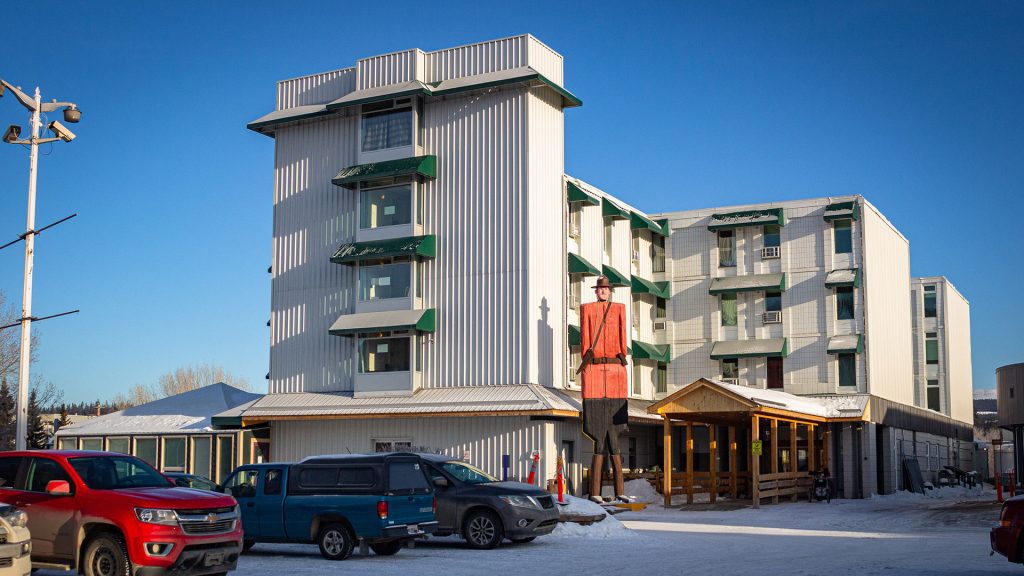
The High Country Inn in Whitehorse is being converted into affordable housing. Photo: Jordan Haslbeck/APTN.
A hotel in Whitehorse is being converted into supportive housing units for Indigenous people.
On Monday, the minister of Housing and Diversity and Inclusion, Ahmed Hussen, announced the federal government is providing $15 million to homelessness advocacy group Safe at Home Society to convert the High Country Inn to 55 supportive housing units.
At least 75 per cent of the units will be given to Indigenous people in need of housing, 50 per cent of units will go to women and 16 units will be provided to youth.
“Simply put, affordable housing should not be a luxury,” Hussen said. “It’s how parents can plan for the future of their kids and raise their children. It’s the difference between really making ends meet and getting ahead.”
Hussen was joined by minister responsible for the Yukon Housing Corporation, Ranj Pillai, Yukon MP Brendan Hanley, Whitehorse Mayor Laura Cabott and executive director of the Safe at Home Society, Kate Mechan.
“I think this is an investment in community, an investment in people,” Mechan said. “Not just in housing, but truly affordable housing for people who have been marginalized through their housing experiences, through their history of trauma.”
The news follows an announcement made last year by the Safe at Home Society that the organization was proposing to convert the hotel into supportive housing as a way to aid Whitehorse’s affordable housing crisis.
Whitehorse city council subsequently backed the project by applying for and receiving $5 million under the cities stream of Canada Mortgage and Housing Corporation’s (CMHC) Rapid Housing Initiative (RHI).
“We’re happy to see this now come to fruition,” Mayor Cabot said. “I’m confident this project will have a positive impact on our community and, of course, the much-needed housing we need here in Whitehorse.”
Cabott said while there is work to be done to garner more community buy-in, the project has support from all three levels of government, First Nations and other community groups.
The project will receive $10 million in funding through the northern carve-out from the National Housing Co-investment Fund (NHCF) for the acquisition of the building. RHI will provide the other five million dollars for renovations.
The Yukon Housing Corporation will also provide one million dollars in additional funding under the Housing Initiatives Fund.
The building will be owned and operated by the Safe at Home Society, which purchased the hotel from the Northern Vision Development corporation.
Mechan said the building does not require extensive renovations, though it will entail bringing the hotel from 82 suites to 55. Some suites will also be transformed into two-bedroom family pods.
She also noted the building will provide additional support for tenants. She said a tenant advisory committee will be formed to decide what support tenants want. That could include things like building a commercial kitchen for meal preparation and gathering and using existing office space for counselling and employment training.
Mechan said the building is not a “silver bullet” to fix Whitehorse’s homelessness issue, but it is a start.
“This will inch us closer to ending homelessness,” she said.
Renovations are underway and the project is expected to be completed by this fall.
Safe at Home Society data shows 126 people and families are actively homeless in Whitehorse.









